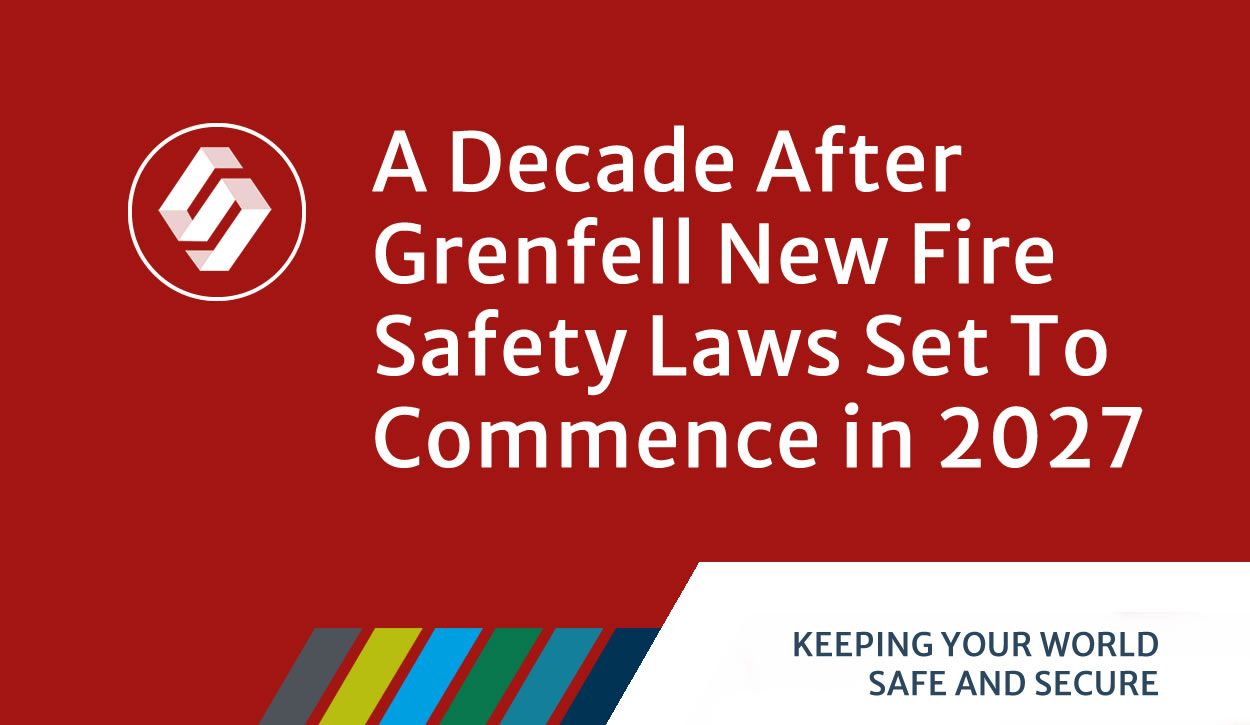A Decade After Grenfell New Fire Safety Laws Set To Commence In 2027
Nearly ten years after the Grenfell Tower tragedy, the Welsh Government has announced a major overhaul of fire safety legislation for flats and high-rise buildings. The new laws, set to begin rolling out from 2027, aim to bring greater accountability, clearer responsibilities, and stronger protections for residents.

Announced in July 2025, the legislation is part of Wales’ long-term response to the devastating 2017 Grenfell fire in London, which claimed 72 lives. Housing Secretary Jayne Bryant said the changes are designed to ensure residents are both protected and empowered. “We want to make sure residents are heard and listened to,” Bryant said. “People didn’t know who to turn to or who was responsible and that must change.”
The Building Safety Bill will introduce a legal requirement for an “accountable person” to oversee fire safety in every residential building with flats including converted houses. This individual or organisation, often the building owner or a managing agent, will be legally responsible for conducting fire risk assessments and managing key risks, such as combustible cladding.
Buildings will be categorised by risk, with high-rise blocks defined as those over 18 metres (60 feet) tall—subject to the strictest requirements. Welsh officials noted that this approach would include more buildings than similar laws in England. While the bill was first proposed for consultation in 2021, Bryant defended the delay, saying the government had prioritised thoughtful, effective legislation based on the findings of public inquiries and expert reviews. “We’ve taken the time to get this right,” she said. “This is about delivering meaningful change, not quick fixes.”
Additional safety reforms include a ban on flammable cladding, which will come into effect in December 2025. The bill also places some responsibility on residents themselves, encouraging them to take an active role in reducing fire risks and engaging with safety procedures. Buildings will be put into three categories, depending on their size, with tower blocks at least 18m (60ft) tall in category one with the strictest safety requirements.
However, concerns have been raised about the pace of reform and the practicalities of implementation. Plaid Cymru’s housing spokesperson Sian Gwenllian warned that new legislation should not divert attention from urgent remedial work still needed across Wales. Meanwhile, Welsh Conservative shadow housing secretary Laura Anne Jones said there remains “a long way to go” in providing clarity on how local authorities and leaseholders will be supported in covering the costs. If passed by the Senedd, the new fire safety regime will begin to take effect from 2027, reshaping building safety standards across Wales.
It is essential when choosing a fire alarm system, that the type of system is one that is suited to protecting the safety of your people and property. We understand that when it comes to fire protection, there is no one solution that fits all. Our experienced project team continually develops our system designs using the latest technological advancements to suit your specific fire risk in accordance with current legislative and British Standard requirements.
We are 3rd party accredited by BAFE, SSAIB, and ISO registered, with over 25 years experience installing and maintaining fire alarm systems across the UK for Commercial business, heritage buildings, schools, local councils and national accounts. You can be assured of excellent technical support and advice, whether you need a brand-new install, upgrade to your existing system or a reliable ongoing maintenance contract.
#FireAlarms #FireRiskAssessment #FireSafetyEquipment #FireAlarmMaintenance #AccessControl #CCTV

